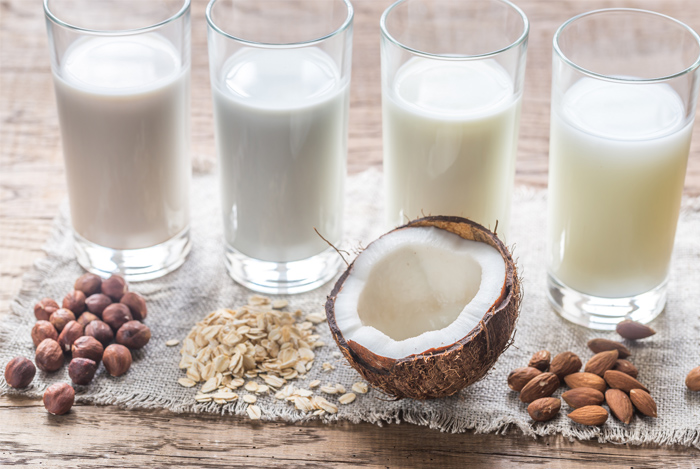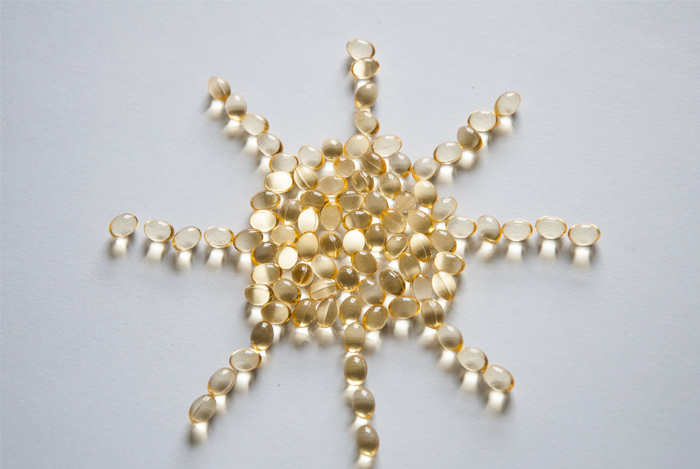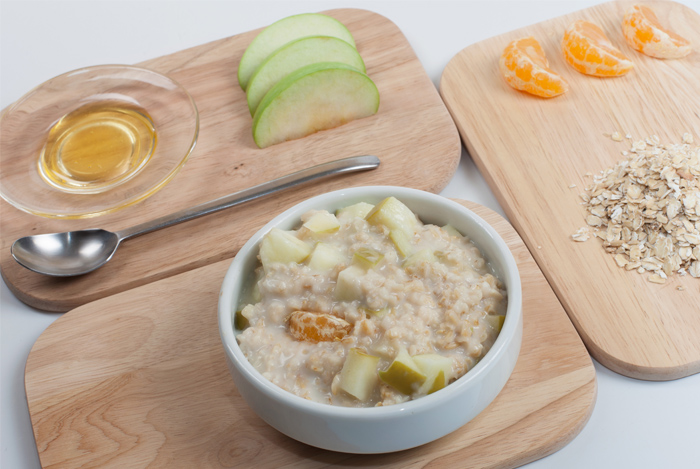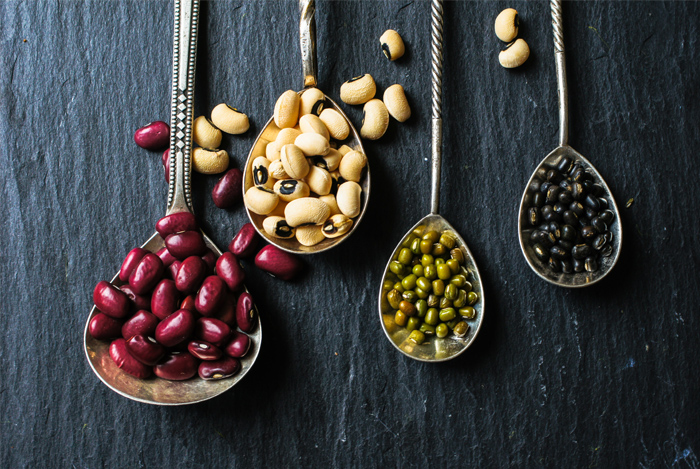Menopause can affect women as young as their thirties and last up to 10-15 years for some women.
Perimenopause and postmenopause can also come with many of the same uncomfortable symptoms of menopause, such as night sweats, digestion issues, sleep problems, and mood changes.
Although you can’t prevent or cure any of these symptoms naturally until they run their full course, you can greatly reduce menopause symptoms through your diet, believe it or not.
Studies have shown that diets high in processed foods, high-fat animal products with added hormones, and diets especially high in fat can trigger an onset of hormonal problems for women which can also increase negative menopause symptoms. These foods also deplete good bacteria in the digestive tract which can release a negative response from hormones further and create even more digestive problems.
Luckily, there are a number of goods that can help you reduce the symptoms of menopause you are dealing with. Here are some of the best to start adding to your plate and filling your diet with.
10 Powerful Menopause Dietary Tips
1. Fill up on Dark Greens

Kale, spinach, chard, arugula, romaine, collards, mustard, and turnip greens are all packed with detoxifying ingredients that boost the production of DIM in the body.
DIM stands for diindolylmethane. This compound is found in dark leafy greens, and it’s also found in broccoli, cauliflower, Brussels sprouts, cabbage, and bok choy.
DIM helps excrete negative estrogenic compounds in the body which can occur even if your overall estrogen levels are low. This one change alone will help reduce your blood sugar levels to fight insulin swings that can alter estrogen changes, and it can help your body produce more of the natural estrogen it needs while fighting off negative hormone disruptors in the environment and your diet.
Eating a diet rich in dark greens also provides your body with several trace minerals that balance your hormones, including magnesium and calcium which are important for nervous, digestive, bone, and blood pressure health.
2. Choose Dairy-Free Milk Alternatives

Dairy milk is full of natural hormones because pregnant cows can only produce milk. Even if you’re purchasing organic dairy without added hormones, you’re still consuming the hormones of a pregnant cow.
Although dairy is seen as a good source of calcium, that’s not the whole story.
See, our bodies were not meant to consume other mammals hormones, and when we do, we’re exposing ourselves to harmful and unnecessary hormone disruptors that our bodies can’t process or recognize.
Choosing a dairy-free alternative product, such as almond or coconut milk, is a great way to reduce the symptoms of estrogen imbalance in the body and improve your own body’s natural hormone balance.
Many non-dairy milk products also come with added calcium which contains more calcium than cow’s milk making it a better option for bone protection and heart health.
3. Take a Vitamin D3 Supplement

Vitamin D isn’t just a vitamin; it’s a hormone and critical component of any diet for digestive, brain, bone, heart, and nervous system function. These concerns are critical for women to be mindful of during menopause because a shortage in Vitamin D can exacerbate their menopause symptoms.
Vitamin D3 only occurs naturally in the sun and in certain plants such as lichen. However, food manufacturers often fortify foods like cow’s milk and non-dairy milk products with Vitamin D2 to help improve the nutrition of foods.
Studies have shown that Vitamin D3 is a better form of Vitamin D which your body can absorb, therefore, taking a supplement with Vitamin D3 will provide you with the protection you need if you don’t spend a great deal of time outdoors. Getting 15 minutes of natural sunlight each day can offer even more natural Vitamin D benefits.
4. Use Natural Herbs

Natural herbs such as sage, oregano, black cohosh, parsley, cilantro, and basil can all provide your body with beneficial compounds that reduce stress, night sweats, and they can enhance the detoxification process of negative hormones in the body.
These herbs can be taken in supplement form or they can be added to your dishes directly in dried or fresh form.
5. Don’t Avoid Whole Grains and Fruit

Many women fear eating carbohydrates during menopause because of weight gain, but these fruit and whole grains are two you should keep on your plate for both hormone regulation, energy, digestion, brain health, and even weight loss.
Oatmeal and fruit, for example, are two of the best foods to eat to keep your weight down, heart healthy, and your gut bacteria in check. These carbohydrates are processed much differently by your body than the carbohydrates found in sugar, refined grains, dairy products, and alcohol.
You’ll want to look for whole grains and not whole grain products (such as bread or crackers). Oats, wild rice, quinoa, amaranth, barley, and rye are all great options. If you eat a gluten-free diet, choose gluten-free oats, wild rice, brown rice, black rice, quinoa, amaranth, and others such as millet and teff.
Fruits such as berries, apples, and pears are all excellent fruit choices that can help cool you off, enhance your digestion, and protect your heart. Pineapple and melons are also great sources of antioxidants and Vitamin C to help combat oxidative stress and aging.
6. Get 5 Servings of Veggies Every Single Day

Filling your diet up with plenty of vegetables is also a great way to reduce menopause symptoms through your diet. Foods such as carrots, onions, celery, asparagus, broccoli, cabbage, cauliflower, bok choy, sweet potatoes, winter squash, and pumpkin are all rich in nutrients that can improve hormone function as well as keep you full.
Whether you eat your veggies raw or cooked, aim to get at least five 1-cup servings of vegetables in your day if you can. Your digestion, night sweats, your mood, and your digestion should improve rather quickly just from this one change alone. An easy way to accomplish this is to simply 2 cups of veggies to every meal you eat!
7. Avoid Excessive Caffeine

Many women are able to tolerate small amounts of coffee or green tea during menopause, but overall, do your best to avoid excessive levels.
Caffeine can lead to an imbalance of hormones if too much is consumed. Every person’s caffeine tolerance is different, so be mindful of how it affects you and choose decaffeinated options whenever possible.
Certain herbal teas such as hibiscus, peppermint, and chamomile tea are all excellent choices to consume if you get tired of drinking water; they’re also naturally decaffeinated.
8. Choose Plant Protein

Proteins such as lentils, black beans, and peas are all excellent sources of plant-based protein to help keep your bones strong. They offer calcium, magnesium, potassium, and most importantly, iron and fiber, to help keep your bones healthy and your heart healthy.
By choosing plant-based protein, you also naturally avoid the hormones in animal products and the negative side effects that come from eating them.
Check out these others natural sources of plant-based protein to also add to your plate!
9. Don’t Diet

Dieting during menopause can rob your body of nutrients it needs for strength, vitality, and optimal hormone balance.
While you may feel nauseous and find your appetite starts diminishing during menopause, it’s important not to reduce your calories but focus more on the quality of the foods you’re eating.
Filling your diet up with fruits, vegetables, whole grains, legumes, nuts, seeds, avocados, and leafy greens will naturally satisfy you and provide your body with healthy sources of calories that also help keep your weight down too.
Healthy fats like almonds, walnuts, flax, and chia seeds are also excellent sources of mood-boosting and heart-healthy fats that can enhance your health. A few servings of these foods (3-4 tablespoons) per day is also all you need to get the benefits they offer.
10. Experience the Magic of Maca

Maca is an ancient superfood that is an excellent choice for women going through menopause. Taking maca will not only balance out your estrogen levels naturally, but it will also help reduce mood problems that can happen with menopause.
Maca powder provides your body with a feeling of positivity, energy, and a renewed sense of vitality. It also has a tasty flavor similar to that of caramel and butterscotch which makes a delicious addition to any shake with raw cacao, spinach, blueberries, chia seeds, hemp seeds, almond milk, and a cup of frozen pineapple. Give maca a try and see how it can help you!
Don’t Forget:

While you’re tidying up your diet to support your menopause experience, be sure you also give your body the chance to get plenty of rest and movement.
Getting adequate levels of sleep and doing activities such as walking, yoga, journaling, and meditation can all help reduce added stress. Even just 20 minutes a day can provide you and your body with major benefits that will last for years to come.
For more tips on improving your hormones, don’t miss out on these five everyday superfoods for women that you can find at every local grocery store!
The post How to Reduce Menopause Symptoms Through Your Diet appeared first on Nutrition Secrets.
http://www.nutritionsecrets.com/how-to-reduce-menopause-symptoms-through-your-diet/
No comments:
Post a Comment